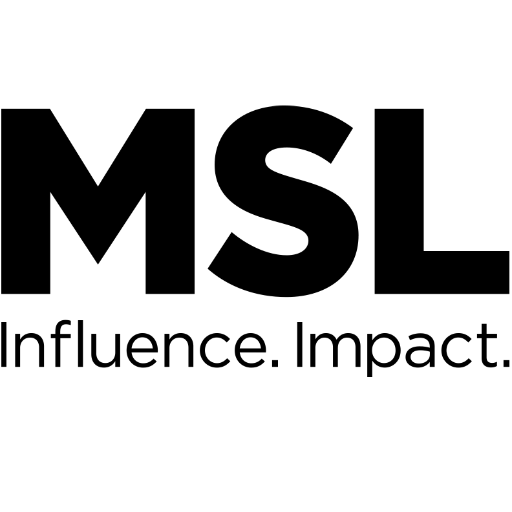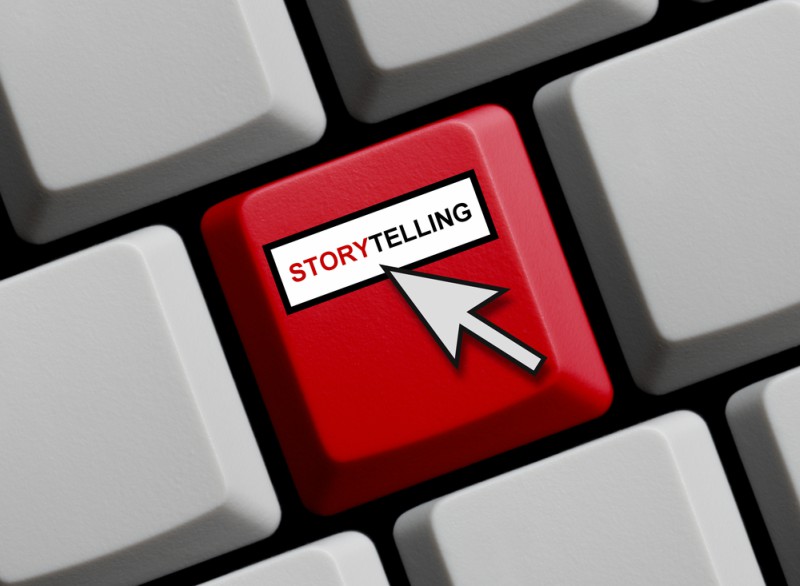Arun Sudhaman 25 Jan 2016 // 10:20AM GMT

You would have been hard-pressed to describe the mood at Davos this year as bullish. While there was little evidence of panic, much of the conversation among business leaders revolved around specific economic concerns — volatile stock markets, China’s slowdown, falling oil prices, security and refugee issues — contributing to an "outlook as chilly as the setting."
Check out all of our Davos coverage here, including Publicis Groupe chief strategist Rishad Tobaccowala on why more marketers should attend Davos.
For the communicators and public relations people who were out in force at the event, there was plenty to ponder, assuming they found a moment for reflection. The World Economic Forum can attract opprobrium, and with good reason — outside the Davos bubble all of the ‘consensus-building’ is often viewed as empty posturing, a one-week atonement session for sins committed throughout the rest of the year.
Yet, beyond the celebrity stardust and private parties, the Davos agenda, and the multi-stakeholder worldview that it espouses, can still bring considerable insight into the looming issues that will affect corporate reputation and brand influence in 2016 and beyond. As GM SVP of global communications Tony Cervone put it to me, "hearing how people are articulating their points of views" is a critical benefit for communicators.
"It almost doesn’t matter which sessions you go to," he points out. "Knowing where people are and what’s important to them is relevant. The days of our ability to tell people what’s important to them, independent of their point of view, are long gone. Even the agenda that gets set at Davos tells you a lot about what people are thinking about."
Accordingly, here are five themes from this year’s edition of the conference, drawn from the observations of several of the senior business leaders and communications executives in attendance.
1. Growth and volatility
"How do you speak to consumers who are feeling stressed?" The global elite are worried, which probably means we should be too. A combination of factors —volatile stock markets, China’s slowdown, falling oil prices — mean that the IMG has cut its global growth forecast, and confidence among business leaders in the global economic environment has fallen sharply.
Complicating matters further are widespread security risks and the volatility that they represent. "Nothing hurts consumer confidence more than the fear of not being able to travel," said MasterCard CEO Ajay Banga at a CA Technologies/EY event.
Economically, this was not quite the full-blown panic of 2009, but there are some important implications for communicators. "Businesses and leaders are all worried here about growth," said Burson-Marsteller CEO Don Baer. "I think that is the boundary for every part of the conversation — what they should communicate and how they should communicate.
That uncertainty, continues Baer, persists from both a consumer and B2B standpoint. "How do you speak to consumers who are feeling stressed over that," he asks. "In B2B — what certainty can businesses have about what to focus on from the standpoint of reputation?"
Meanwhile, China’s slowdown loomed large over the event, despite the best efforts of Alibaba’s Jack Ma and others to tell a more positive story. Yet, corporate communicators — and their PR firms — are already well-versed in the ups and downs of China’s economic environment, especially after the country’s clampdown on MNCs in recent years. Few, therefore, are particularly worried about the country’s growth prospects, particularly in light of increasing urbanisation and an expanding middle class.
"There’s a definitely a difference between the PE investors, who see huge opportunity, versus the companies that are stuck with analysts, who are saying this is slowing down," says Y&R CEO David Sable. "We’re very bullish about China — we’re in a business that’s about communicating, and more and more people come into the market everyday."
Continued volatility, whether from terrorism or extreme climate change, also factors into the economic uncertainty at Davos. "Massive immigration/refugees has put pressure on social services and created a new definition of nationalism in the US and elsewhere that is built on prejudice and exclusion," explains APCO founder and chairman Margery Kraus. "Climate change is now seen as a number one threat to business in the world, according to a pre-survey by the WEF. How will this and declining oil prices constrain resources that might have been dedicated to our work?"
"Those of us involved in crisis communications should have our hands full," she concludes.
2. Tech disruption: The robots are coming
"The threat of disruption is a fear for most people" If economic concerns provided the bad news, a more positive note was struck by the considerable technological innovation that is reshaping every industry — dubbed the ‘Fourth Industrial Revolution’ by the World Economic Forum — and brought to life at the event by Korean robot Hubo.
Robots, it appears, are set to invade the workforce, with some corresponding implications for society at large. "The foremost challenge is that the economic bounty that will be created by the robot revolution may not be distributed in a socially acceptable manner," pointed out Berkeley professor Laura D'Andrea Tyson at a ‘Robot Revolution’ discussion organised by Harvard Business Review and Tata Consultancy Services (TCS).
And while the implications of automation for communicators are one thing, as explored here by TCS Europe marketing and communications chief Abhinav Kumar, the concerns of the average citizen are of fundamental importance.
"When you step back and look from a person’s standpoint, they have very real issues," says GM’s Cervone. "Are you really looking at your business to solve those issues, or do you have a widget to sell?"
Much of the conversation, accordingly, focused on the potential workforce displacement that will be caused by increasing automation. "We truly do have a responsibility to figure out how to make that displacement as small as possible," said CA Technologies CEO Mike Gregoire.
Or, as MasterCard’s Banga put it, "the threat of disruption is a fear for most people."
Dealing with those concerns will be critical for communicators. "More innovation will bring societal challenges," says Ruder Finn CEO Kathy Bloomgarden. "If you look at the information age that preceded this one — you have the growth and job creation that came from them — but you need a strategy in every country for job training."
While regulatory challenges will persist, perhaps the biggest issue posed by the rapid pace of reinvention will be internal. "Those that can’t keep up won’t survive, but there is more to the story than just speed," says Ketchum North America CEO Barri Rafferty. "Internal communications plays an important role, because rolling out new technology to improve your business will actually harm your business if your culture hasn’t shifted to embrace those changes."
That much was clear at a fascinating discussion on how CEO’s overcome internal resistance to innovation. It should also be clear to people running their own communications departments and PR firms. "What will we do with our people who do not have the skills to compete in this new world?" asks Kraus. "Do we have any special responsibility to assure a smooth transition?"
For AkzoNobel corporate relations head Leslie McGibbon, at least, the answer is clear. "No matter how much things advance technologically or digitally we will always need great people with new skills to take things forward. This is still a people economy and investing in our talent is crucial."
3. The Trump effect
"That anger is being directed towards brands too" While Kevin Spacey’s refreshingly bizarre antics saw him proclaimed the ‘King of Davos’, the person who appeared to attract most attention was not even there. Donald Trump, and the people that his campaign represents, turned out be a major topic of conversation at Davos, sending jitters through the business and political leaders attending the World Economic Forum.
Trump’s appeal to the disenfranchised is exactly the kind of phenomenon that can pose a threat to the World Economic Forum’s comfortable consensus. All the more reason, says WPP CEO Sir Martin Sorrell, to take it seriously — particularly given his view that Trump is close to creating the world’s biggest brand.
"Those polls can’t all be wrong," cautioned Sorrell of Trump’s popularity with voters. "They are saying something about the frustration and the impact of what’s happened in the last five years."
Sorrell was not the only business leader to draw the link between enduring income inequality — our top theme from last year’s Davos — and the rise of populist politicians like Trump, Marine le Pen and Nigel Farage. Edelman’s Trust Barometer made much the same case, with Oxfam executive director Winnie Byanyima noting that economic inequality and corporate misbehaviour is driving mistrust of business.
"They are running away with the gains," said Byanyima, pointing in particular to corporate taxation policies and their continued lobbying to sidestep regulations.
"We have to stipulate that the anger, frustration, cynicism are there," admits Burson-Marsteller’s Baer. "That anger is being directed towards brands too. Corporate brands have to go that much farther to establish the bonds with all of their different stakeholders. Whether it’s their consumers or the communities in which they work or it’s their employees."
Trump’s rise has other implications for communicators, believes Baer. "It does mean that traditional voices and traditional messages delivered in traditional ways are not working," he observes. "We’re seeing that in the political sector, the economic sector — profound change is the order of the day."
And in a week when Germany was ranked the world’s top nation brand by a new Best Countries study, what does Trump’s popularity mean for America's reputation? "Everyone is baffled to the point of distress by what the developments in the US political situation say about the US, about it’s stability as the driver of economic growth in the world," says Baer. "The Davos consensus would be Hillary Clinton and Jeb Bush."
4. The purposeful CEO
"Most business people carry on business as before" Edelman's Trust Barometer research revealed that in more than half the countries surveyed, the general public cannot name a single CEO. Accordingly, believes Richard Edelman, business leaders must step up if they hope to address concerns over such issues as income inequality, and marry profit and purpose in line with public expectations.
"You have to come out of the bunker — say, here’s who I am, here are my values, here’s why it matters," said Edelman at his Trust Barometer event, recognising that only a handful of CEOs — presumably the likes of Unilever's Paul Polman and Starbucks' Howard Schultz — have made this transition.
Yet Oxfam's Byanyima is sceptical of this shift occurring anytime soon, noting that only a few CEOs understand that business will thrive when it addresses societal issues. "That’s not the norm — that’s [Unilever CEO] Paul Polman and a few others. Most business people carry on business as before."
One thing that might help, perhaps, is if 'purpose' is framed as a economic issue, rather than a moral one. "We have to accept that if you can find ways to build a more sustainable business, your business will grow," said Unilever chief marketing and communication officer Keith Weed. "It’s an economic issue, not a moral issue. Unless we sort this out, companies like ours won’t be around in 100 years."
And CEO visibility is not just an external issue, but an internal one too. At Unilever, for example, Paul Polman leads an organisation in which CSR is integrated with marketing and communication. "You can’t have marketing in one corner, trying to sell products, and CSR in the other, trying to save the planet," explained Weed.
That speaks to the level of engagement required with both employees and the outside world. "Companies need to be both purpose and profit led," says AzkoNobel's McGibbon. "It's now much more than just being about performance for shareholders. As communications professionals we need to look at how this impacts our narrative development. The ongoing increase in internal engagement to inspire our own organisations is crucial."
5. Gender and diversity
"Our industry is not that far ahead of the curve" Much has been made of the gender imbalance at Davos, where only 18% of official attendees are women. Belatedly, perhaps, Kraus notes that "there was much more focus on the business case for gender equality" this year, especially as it relates to the beneficial impact on leadership and decision-making.
As the Holmes Report has covered in detail, the issue of gender inequality is one that affects the public relations world, despite the preponderance of women entering the profession. A few years ago, Ketchum’s Rafferty noted that she was continually asked at Davos if she was the spouse of an attendee.
"While that, frankly, frustrated the hell out of me, it also motivated me to do something about it," says Rafferty. "Yet even as Ketchum and other agencies have made strides to promote more females from within, establish more flexible work policies, and provide forums for women to seek mentorship opportunities, our industry is not that far ahead of the curve, and we need to continue creating supportive workplace cultures that encourage the leadership development of women in communications."
As Kraus points out, it is patronising to view the gender gap as a ‘women’s issue’. "It is a business issue and it will not be solved until it is addressed equally by men and women as an imperative. Some of the leading male CEO’s in the world engaged in this discussion this year in Davos."
"As communications firms that employ a lot of women, we have a special responsibility to make sure that we are training and including women in leadership for the future," continues Kraus.
That extends, adds Sable, to all types of diversity, including racial and sexual — "what began in some areas as a discussion of diversity around women has became a much bigger and broader one about LGTB."
"We have to help our clients solve the issues of diversity and inclusion that impact their workforce," concludes Kraus. "To do this, we also have to be authentic in our own actions and practices."


































.jpg)



































